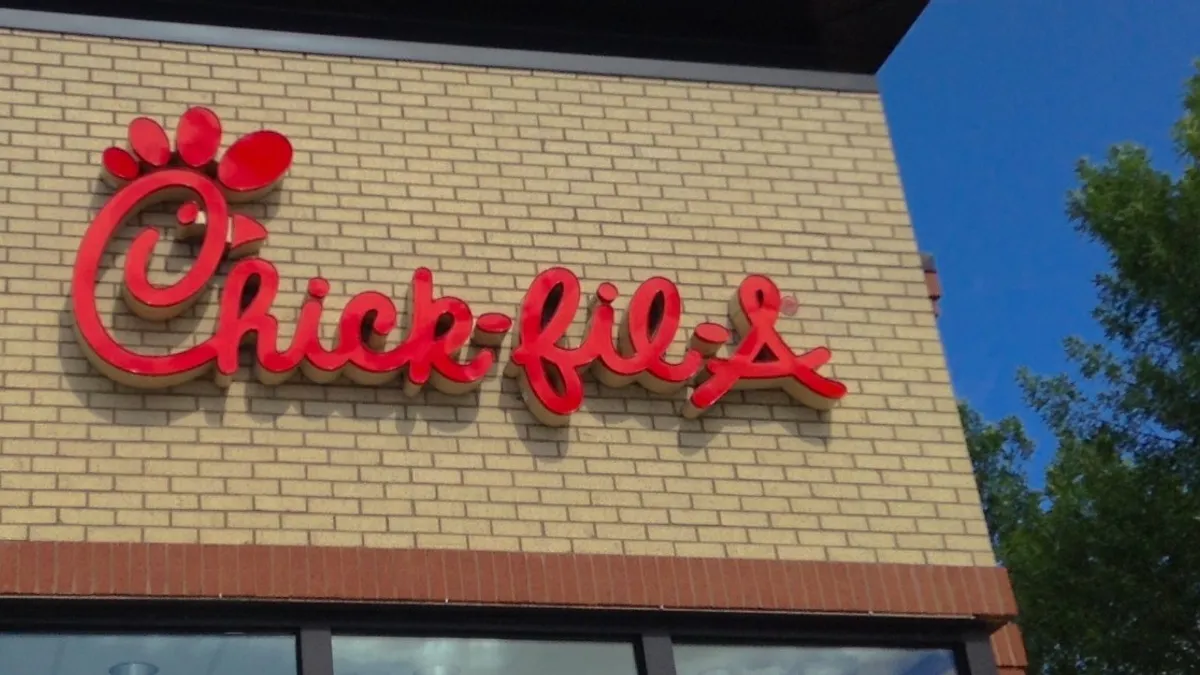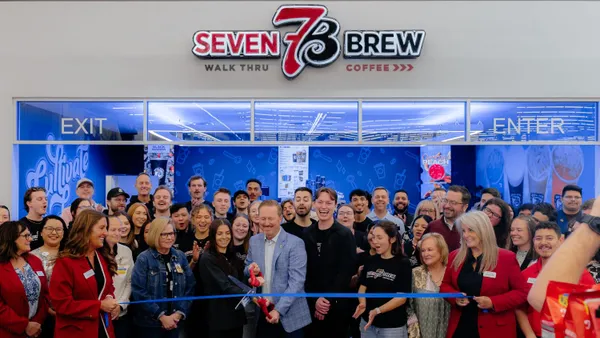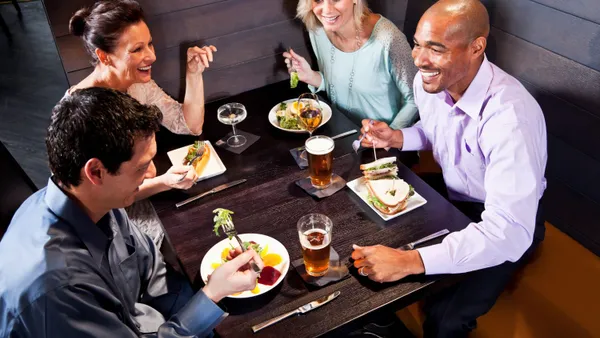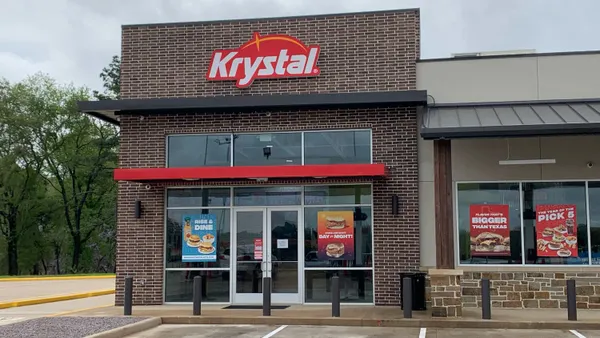Dive Brief:
- Some Chick-fil-A locations have switched to a cashless model to help stem the spread of COVID-19, according to Business Insider. These restaurants are in Florida, Indiana, Georgia, Virginia and Maryland.
- On Monday, a Chick-fil-A in Severna Park, Maryland wrote on Facebook that it would "no longer be able to accommodate cash customers," beginning Tuesday, April 14, for example.
- Chick-fil-A's website is also encouraging diners to order and pay online through its mobile app. Some restaurants, including two in Jacksonville and Lake Park, Florida, are urging customers to use cashless payments rather than requiring it. Guests that use credit or debit cards are asked to swipe their own cards at the cash register.
Dive Insight:
The global spread of the novel coronavirus has caused many companies to reevaluate the logistics of their businesses, including how they accept payment. Concerns over whether paper money and coins are a prime vector for spreading the virus have been a top concern among businesses and consumers. Although the World Health Organization has not issued any warnings against using cash, some have noted that paper bills can carry quite a germ load. Simply touching a contaminated bill would not be enough to cause the person to contract the virus but if he or she touched his or her mouth, nose, or eyes soon after then the chances of an infection increase.
A number of restaurants have started switching to cashless payment methods, including Tender Greens, but cashless payments are still not a perfect solution for reducing the odds of contamination during a payment exchange, according to some medical professionals. Touching a cell phone while using an app, a credit card or any other touchpad device to make a payment still carries risks, particularly if facial touching occurs soon after contact.
Chick-fil-A likely enacted the cashless policies at some stores in a bid of extreme caution as well as a desire to woo consumers who may be worried about whether paper money could carry the virus. But for some customers, the cashless move could be a major turn off. Critics of cashless payment systems argue that they discriminate against unbanked, homeless, elderly or otherwise financially disadvantaged individuals.
Amazon Go received the brunt of this opposition when a number of cities, including San Francisco, banned stores from only accepting cashless forms of payment. If Chick-fil-A wants to expand its cashless approach to payment it may run into similar roadblocks in other municipalities that have enacted such bans, including Philadelphia and New Jersey. Philadelphia’s ban led restaurant chain Sweetgreen to begin accepting cash payments after over two years of operating as a cashless store.
Chick-fil-A has shuttered some of its restaurant locations due to COVID-19 and has reported at least two incidents of employees testing positive for the virus at a store location in Waco, Texas, and on Tuesday in Ohio County, West Virginia. On March 15, it closed all dining room seating for all of its restaurants in the U.S. in an attempt to limit contact.













